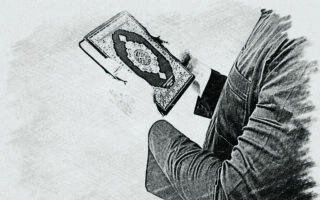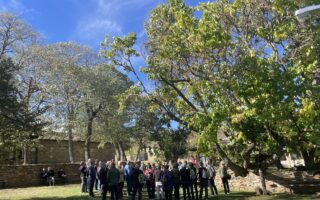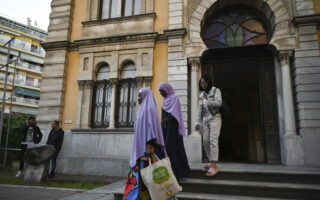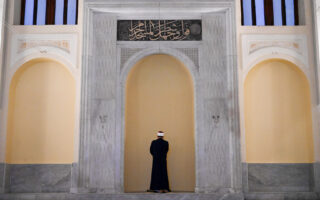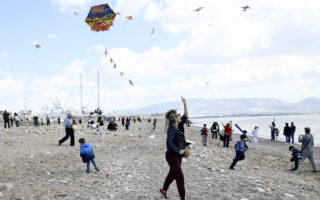‘We are an amiable hodgepodge’
A small Babel with Pomaks, Roma, Armenians and descendants of Asia Minor families makes up the town of Komotini
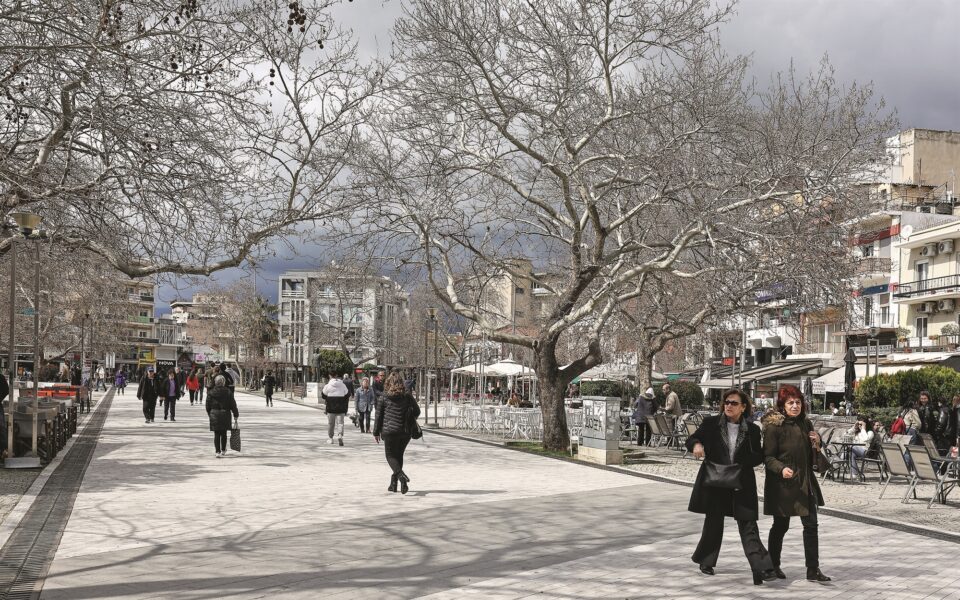
The sun was setting in the center of Komotini when suddenly cannon fire was heard. None of the numerous patrons at the local cafes was disturbed. What was it? “The sound signifies the end of the Ramadan fast that lasts from sunrise to sunset,” a passer-by explained. “Muslims can now start eating. There is also a similar cannon that fires at dawn to herald the beginning. In the old days, some people would go out in the Muslim neighborhoods before dawn, banging tins. Fortunately the noisy custom has stopped. It is very barbaric to wake up like this if you are not fasting.”
This cannon firing was our welcome to a city with many unknown codes for the visitor and a charming medley of people from different groups coexisting harmoniously. Thrace makes you think about how great empires once used to be.
Little evidence from the past survives in Komotini: A small section of a Byzantine wall, stones from the floor plan of a local synagogue, a 14th century almshouse (Imaret), some mosques and some civic buildings. There are also the neighborhoods of the 1922 refugees who came from Turkey, the Muslim quarter which in some places resembles labyrinthine mansions, and a Roma settlement, Alan Kuyu, which is considered almost a no-go zone. The city is a little Babel of Pomaks, Roma, Armenians and descendants of East Thracians, refugees from Asia Minor, Pontians, Sarakatsani, and Epirotes. How do you decode it in three days? There was no better person for this job than psychiatrist Garo Esayan, a native of the city, who talked to us about the psychologically complex past and the even more complex present of Komotini.
“I was born in 1956. My father was one of the first Armenians to marry a Greek woman. He came from Bursa when he was a year old, after the genocide. My grandfather spoke only Armenian and Turkish. I had also started to learn Turkish through the fairy tales he told me. I was not even 5 years old when he decided to talk to me about the massacres of 1915. It took me a long time to say a word in that language again. Besides, I grew up next to Muslims and we all played together as kids, we were friends. My father, a cosmopolitan jeweler who traveled from Antwerp to Lebanon, was extremely popular with the Muslim minority. Everyone in this city carried their experiences but they did not poison their daily life. I did the same. I do not scorn the history of my people, I will fight for the genocide to be known, but I will not blame it on my neighbor or fellow citizen simply because his name is Mehmet,” Esayan, one of the 200 Armenians living in the city today, tells Kathimerini.
‘Powerful guardian’
We were sitting in the traditional Cuma cafe. What is happening with the minority? “For whole decades, there was mismanagement by the Greek state in this matter,” he says. “Until 1991, people experienced segregation and fear. The roof of the home would fall off, and they couldn’t get a permit to repair it or get a driver’s license. So then they collected their money and sent it to Turkey; they bought houses there. Today this has proved to be a ‘tool’ when the Turkish consulate based in the city [on the basis of the Lausanne Treaty for non-exchangeable population] wants to manipulate them. After the events in Cyprus in 1974, minority shops were vandalized here. Many people were scared, they crossed the [Evros] river [that separates Greece from Turkey] to the other side. Because they have experienced insecurity, they are flattered to have a powerful guardian like the Turkish state. But they don’t like the way of life in Turkey, they prefer ours,” he adds.
“In 1990 I returned to Komotini after many years of living abroad. I remember this image that was typical of many Muslims. They would cross the road with their heads bent down, they didn’t dare to see if a car was coming. They figured the driver would stop. When I opened the clinic at that time in the center of Komotini, many of my colleagues thought that I was committing professional suicide. I had already studied medicine in Milan, psychiatry in Paris and received further training in Lausanne. Back then, going to a psychiatrist was taboo in the countryside. Despite the difficulties and obstacles, I believed I had a lot to offer and I was vindicated both at my office and as a teacher at the Democritus University. People – Christians and Muslims – needed help. And by giving back to my country, I felt a sense of fulfillment that I wouldn’t have felt if I had lived abroad,” Esayan says, taking a sip of coffee.
The Muslim minority “began to breathe again” from 1990 onward, and even more so later, with the law of then education minister (and later prime minister) George Papandreou that allowed them to send their children to Greek universities though a quota. “The possibility of being educated in Greek universities and having a European passport has given wings to the new generation of Muslims,” Esayan says. “Many times I have received an email from London or Amsterdam from the child of a member of the minority who is living and working abroad, to make an appointment for his mother or father who live in a village.”
And how is the city today, we ask the psychiatrist. “It is two different cultures that coexist but do not merge. The two communities are not communicating vessels, they intersect only in the exceptions. Fear prevents osmosis. There are funerals, for example, and the Muslim will go to pay his respects to the Christian friend or neighbor, but will not enter the church. Which makes sense. This is a place where you’re immediately labeled, if you’re with so-and-so or so-and-so, you’re with the Turkish consulate, you’re with the other side,” he responds.
“The biggest problem of all, however, is that youngsters from all communities are migrating. My two boys and my brother’s son are all doctors. Two live in the US and one in Switzerland with no plans to return. The Esayans are now finished in Komotini.”
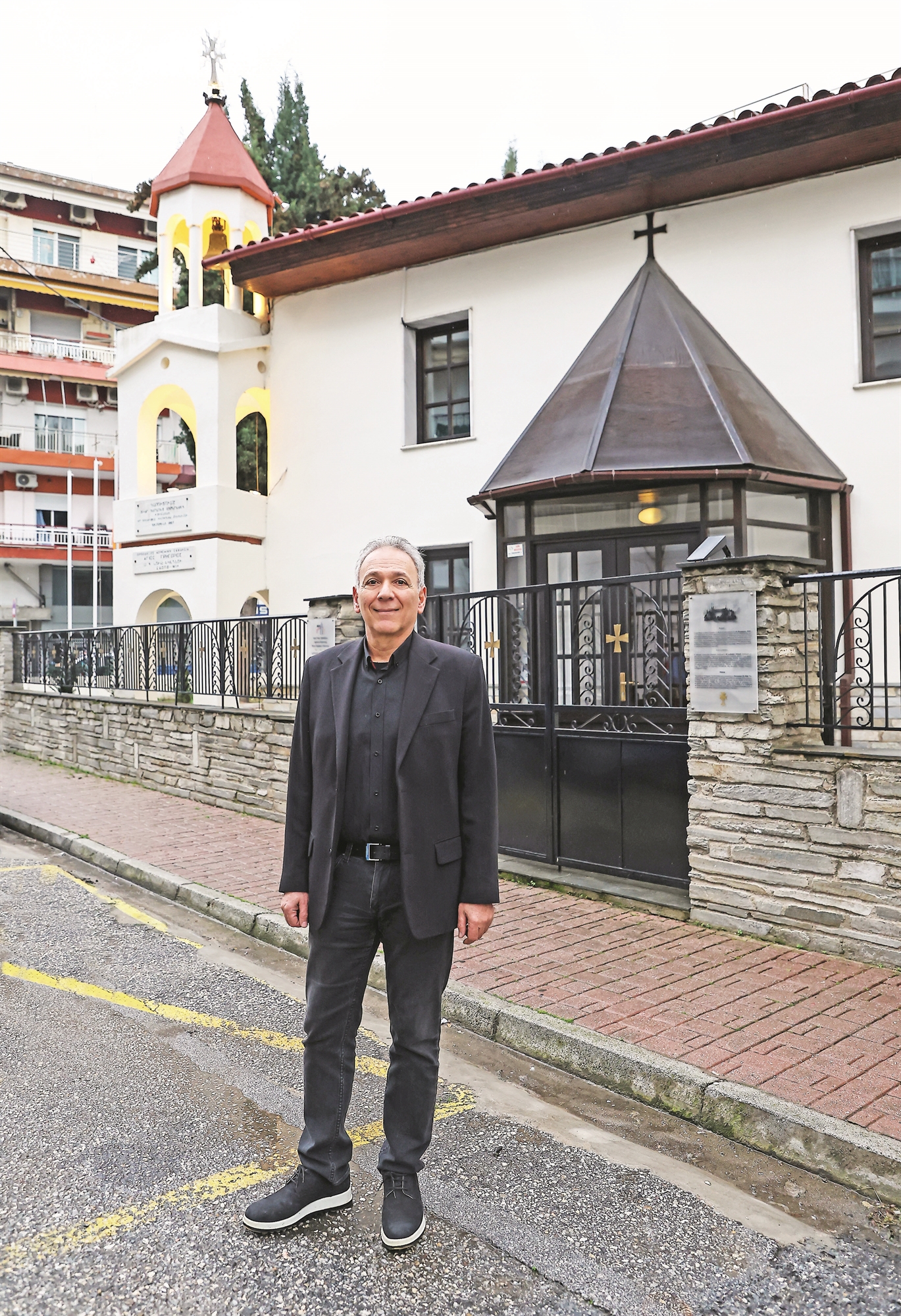
The students
At a time when local youth are migrating abroad due to unemployment and poor wages, thousands of students arrive every year from all parts of Greece. Ioanna Paravanti, an Athenian, is in her second year of law school and describes the city as a “school of empathy.” “What they say about Komotini is that you cry twice: once when you find out you’ve been accepted at university here, and once when you graduate, because you loved it. I chose to come, I wanted to see a distant and unknown part of my homeland. I had heard very good things about my school, not only about the quality of studies but also the fact that the youth wings of political parties do not have a strong presence at the university. I was surprised when I first saw the two communities coexisting and women wearing headscarves, when I heard the imam’s call to prayer during the day. You become more tolerant and that is a huge asset for a young person.”
Archaeologist and museologist Naya Dalakoura, who was born in the city and is of Sarakatsani origin, with a father born in Konak, Izmir, has studied, worked and lived in many places. “I came back because I wanted my daughter to acquire this sense of tolerance and coexistence that exists in Komotini. Things that are considered a priority in education today, in this city we learned them through lived experience. From kindergarten to high school we had classmates from different religious groups and backgrounds. In other words, we lived intercultural education in practice without realizing that it is something special, through different celebrations, local costumes, cuisines, customs and traditions,” she explains.
‘I do not scorn the history of my people, I will fight for the genocide to be known, but I will not blame it on my neighbor simply because his name is Mehmet’
“Komotini’s strength is its people. Here, in Thrace, we are far from everything and so we have each other. When they leave us alone there are no problems. Problems appear when third parties try to influence in one direction or another.”
Dalakoura’s friend, Hasan Karaduman, lives in the Roma village of Ifestos. We met him at the Nedim sweet shop, a mandatory stop for connoisseurs of the traditional dessert kunefe: “My uncle played the bouzouki and sang. Then I fell in love with it and I learned to play the toubeleki by myself. Later, at 18, I started a family and that’s how it became a profession. In the morning I work as a driver and collect cow’s milk,” he tells Kathimerini. “My daughter just got married and my son goes to the vocational high school and works in a paint shop. The problem in the village is that everyone is going abroad. They find work in Germany. I also tried for four years in Munich, I couldn’t stand it. You’re not human there, you are a robot. I have played in Greek bouzoukia for 10 years, now I only play Turkish songs mainly at weddings. People on joyous occasions are all the same, there are no differences.”
Close to everywhere
Just outside of Komotini is the village of Stylari, where Feriste and her husband Metin Ahmet, Pomaks by origin, live. Metin learned Greek because he did various jobs in the city, unlike his wife, who works in the fields and doesn’t use Greek much. This upsets her because she would like to stop being a farmer and change jobs. Cultivating tobacco is a difficult job. “She learned Greek in the minority’s elementary school but forgot it. She wants to go to the public second-chance school in Komotini just like I go to a second-chance vocational training school,” says Metin, who is translating our conversation. “Our son is in the second year of high school, he speaks Greek perfectly and also speaks English. Christians and Muslims we all live together just fine, the financial problems are the issue. I would like us to learn Greek better, to have tutoring schools in the villages. When you grow up, if you don’t speak it well, you will face the consequences in the future. We understand Turkish and speak a little. Between us we speak Pomak, which is closer to Slavo-Macedonian.”
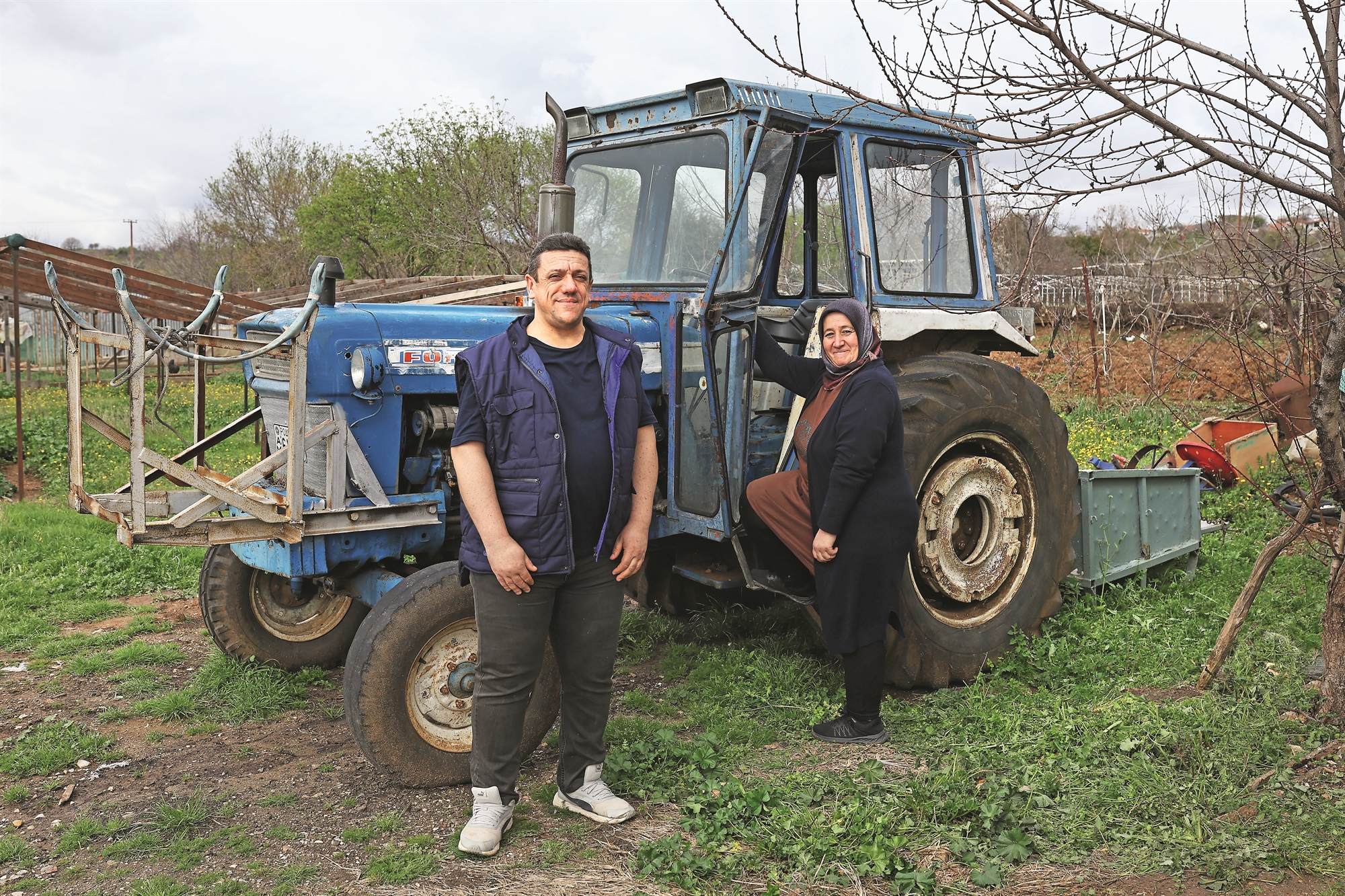
The Pomak couple got into their truck and agreed to take us to the premises of the Vergina brewery, where the owner, Dimitris Politopoulos, was waiting for us. “Frank Zappa used to say that you can’t be a real country unless you have a beer and an airline. We had an airline but no beer in 1994 when I left the US where I was born to Greek parents to come to Greece and build the unit with my brother. In 1996, the Macedonia-Thrace Brewery was founded in Komotini. We were walking with our father on the street and he said to us, ‘Guys, take out your Vergina beer.’ That’s it!” Politopoulos remembers. He even went to court against big players in the global beer market for instances of unfair anticompetitive practices.
“In addition to the jobs we give to our 150 employees, the company grows barley on over 121,000 square meters from Thrace to Larissa, which covers our needs but is also exported. Then we made a new product, Tuvunu [bottled Sideritis – i.e. mountain tea], where crops were grown on thousands of square meters of land near the Pomak villages and beyond. This helped the region a lot because from 2013 onward we gave farmers an opportunity to produce something other than tobacco, which is a very difficult crop. At the same time, apart from having guaranteed incomes, more than 800 growers felt that someone other than the tobacco producers cared about them,” he tells us.
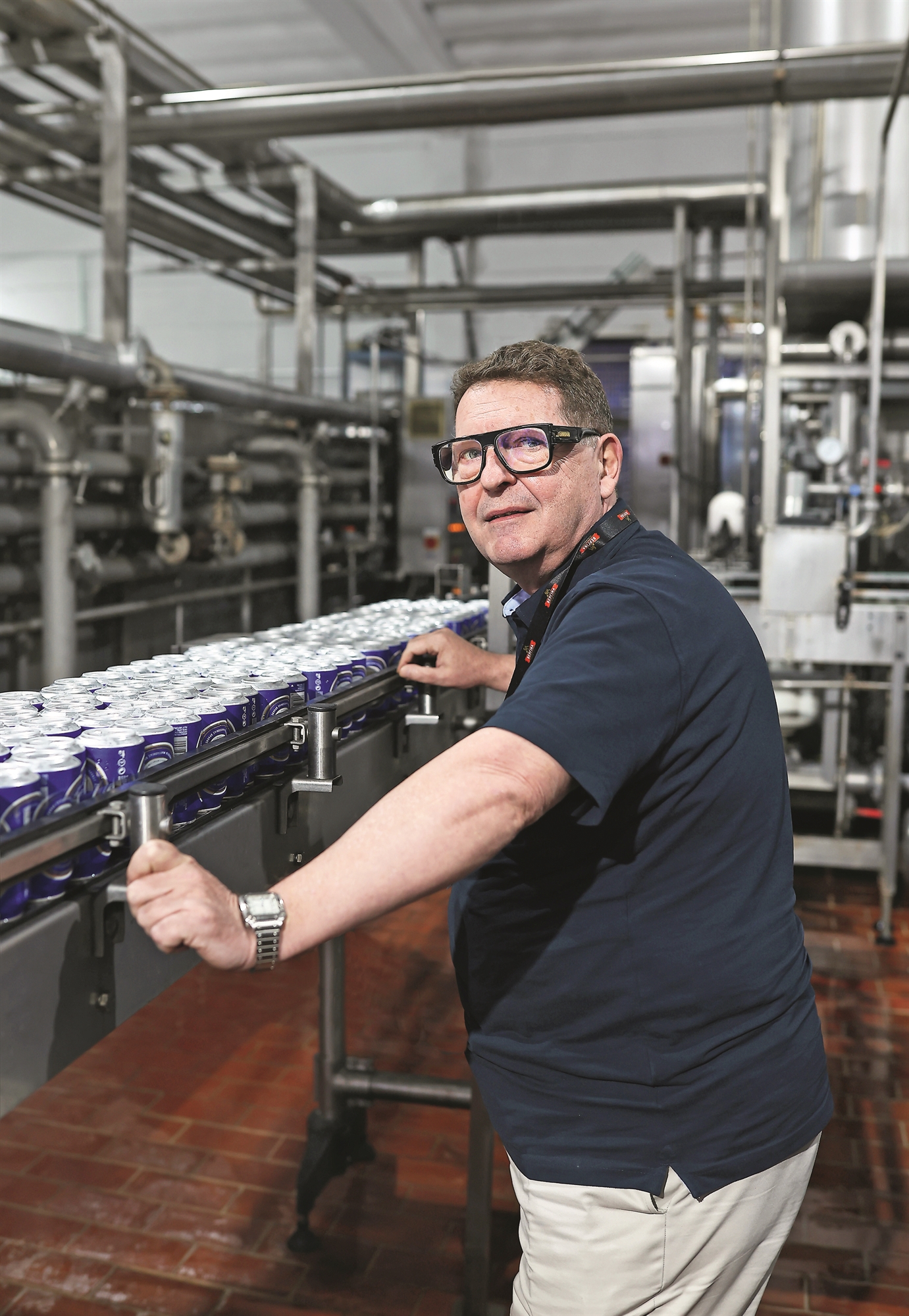
Returning to the city, we met Theano Paschali, who has been working at the local Municipal and Regional Theater for 29 years, and the librarian of the Municipal Library of Komotini, Zafeiris Tsakos, in the beautiful building of the Tsanakleios School. The library has 33,000 books and 2,600 active members – an impressive number. “It is due to the extended hours and good staffing. People of all ages come here, especially children. We also have excellent collaborations with many organizations and together we hold book presentations, a total of over 100 events per year,” Tsakos explains.
With a mother from Asia Minor whose specialties were tzigerosarmas (lamb liver with rice in caul) and minced meat and leek pie, Paschali has always cooked. Together with Tsakos, they created the food guide “Komotini on a Plate,” with all the culinary tradition of the city, from Armenian and Pomak delicacies to Arvanite, Cretan, and Cappadocian.
“We started by looking for old local women with the intention of going to their homes and photographing them making a dish. But then came the confinement of the coronavirus and everything changed. During the long lockdown, we could not easily run from local association to local association and from house to house. And so, by typing Code 6 [a reference to the SMS system used during the lockdowns to leave the house] Zafeiris and I exchanged cabbage dumplings with kavurma, gozleme, bligouri ‘meatballs,’ whatever they brought us or we tried to make,” Paschali explains. “However, in the city there are only tavernas and grills, with only one old restaurant, Ta Adelfia,” she adds.
We had lunch there and then went on another tour with the architect, engineer and history buff Kostas Katsimigas. “Komotini is a city that was built on roads – specifically the ancient Egnatia – and grew through disasters. For me, its trump card is its cross-border nature. In 20 minutes you can reach Bulgaria. In one hour you can be in Turkey,” he tells Kathimerini, and insists on taking us to the Muslim neighborhood to show us the low-ceiling buildings, telling us the history of the city from the 4th century until today. At one point he left us in the car for a few minutes and returned with a delicious sujuk lokum, a sweet treat for us to take with us to Athens, as well as dried apricots, a delicacy loved by the locals.
Vassilios Hadjioannou, assistant professor of civil procedural law at the Democritus University of Thrace, is celebrating 30 years in Komotini this year, from his undergraduate studies at the Democritus, his army service and his doctorate. Since 2004 he has been teaching at his alma mater: “The city I saw with my student eyes in 1994 was as if it had been stuck in the 1960s-70s, a more lower-class version of Greece, with old airs, old-school cafes and Greek music clubs,” he tells Kathimerini.
“The hospitality and generosity of the locals helped us love it. Social life was very intense and the sense that everyone was a friend was pervasive. The weather was much colder than today. I remember temperatures as low as -15C, which is now rare. Coming here, we also discovered the presence of the Muslim community, which, at the time, was more introvert. I will never forget the night of the Imia crisis [when Greece and Turkey came to the brink of war in 1996 over the ownership of uninhabited islets known as Imia in Greek and Kardak in Turkish] when the members of the minority locked themselves in their homes fearing that they might pay the price for the tensions between Greece and Turkey. Every time something happens, as in 1974 [the Turkish invasion of Cyprus], Komotini becomes like an oscilloscope that records the political vibrations extremely sensitively,” Hadjioannou says.
“I also experienced the first batches of Muslim students who entered our faculty under the quota [introduced in 1996 to allow Muslim students access to Greek universities]. There was a huge difference between those who were graduates of minority schools and the others who had finished the Greek public school. The latter were excellent students and many of them did very well when they graduated,” he continues.
“The quota was important because until then children from the minority all went to minority schools and then some continued as boarders in Istanbul and other Turkish cities. Now a lot of them go to our own universities and that is extremely positive. The rapid rise of the Democritus and its Law School, which has completed five decades of life, contributed decisively to the development of the region.”
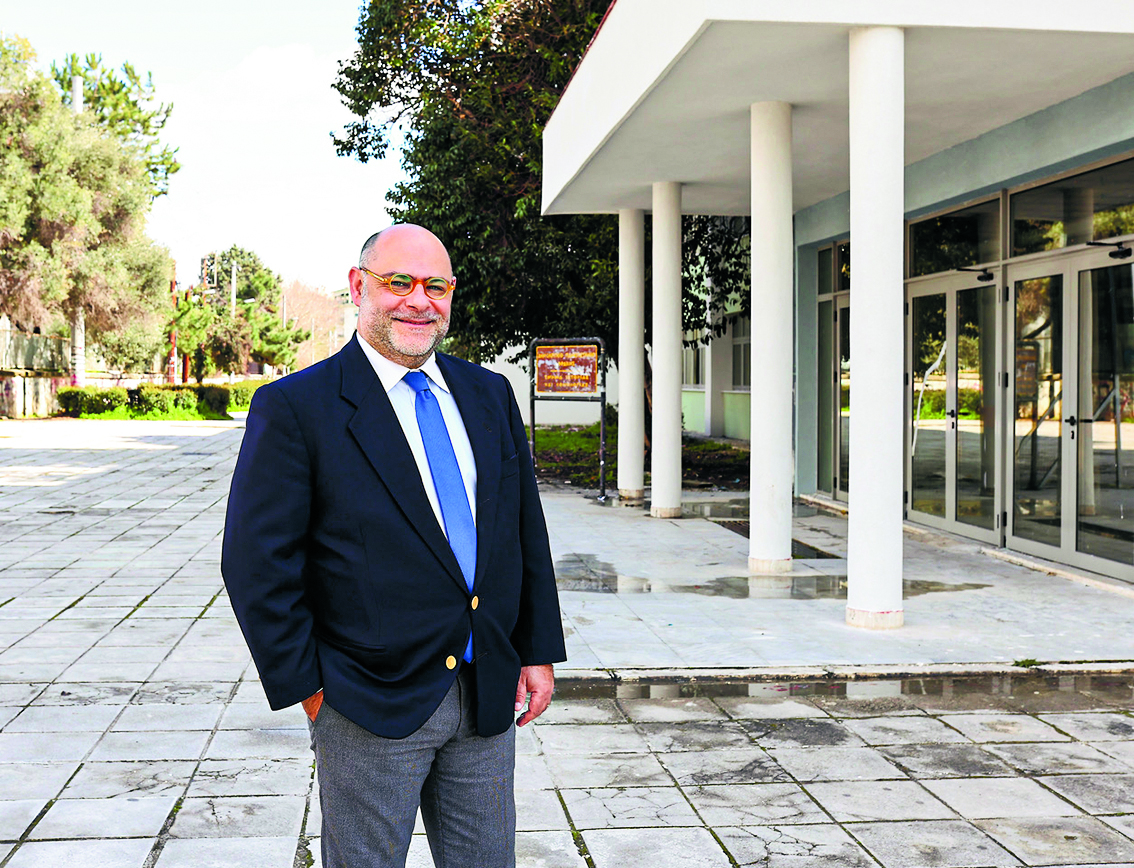
“Let’s be honest, a political game of tension is being played in Thrace, either by one side or the other, especially when elections are looming. Some gain from it. And the choices of the party candidates are opportunistic and are often entered at the last minute without having any relation to politics or a vision for the city,” says Xanthi journalist Sami Karabougioukoglou, who has worked for many years at state-run broadcaster ERT as a local correspondent.
“People here know that they are in danger of falling prey to the relations between the two countries and this does not necessarily mean that we are talking about actions or policies of the Greek government. However, a state employee can harass you, exercise whatever limited power he has over you, not necessarily with a plan or the knowledge of his superiors,” he explains.
